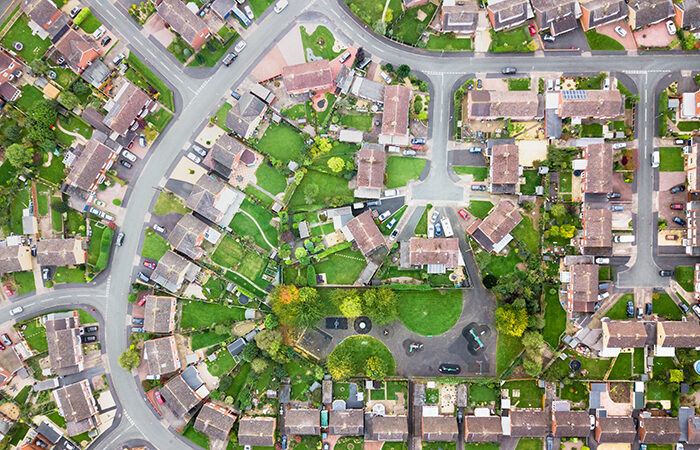
House prices will fall by 7% before begining to stabilise at the end of the year forecast analysts at Deutsche Bank, which they call “a correction, not a crash”.
The investment bank analysts say the market will fall by between 3% to 3.5% by the end of this year, which will mean a 7% fall from its peak in the third quarter of 2022.
It adds this fall would “mark the third biggest house price correction we’ve seen in modern times”, but is still less than the downturn following the 2008 financial crisis and the early 1990s crash, where prices slumped by around 20%.
The bank’s analysts in a note to investors add that a fall of this extent “does little to dent the long-term uptrend” of around 7% a year growth in UK house prices since 1975.
It also cites the Nationwide House Price Index is down around 4.5% from its peak, which by comparison is far less than the almost 18% plunge in the New Zealand housing market since November 2021.
However, the sector is “not out of the woods yet” say analysts, who highlight rising unemployment, base rate rises and stretched affordability as three factors that may threaten a soft landing in the UK.
The unemployment rate lifted by 0.3% to 4.2% over the quarter to June, compared to the previous three months, according to the National Office for Statistics.
The bank says: “Unemployment, which has been largely benign thus far, has started rising, and will likely continue to pick up from here. Any emerging cracks in the labour market will weigh on housing demand.”
It also points to the lagged effect of the Bank of England’s series of rate rises since November 2021.
Deutsche Bank says because half of all borrowers are on fixed-rate deals the effect of these rises will take time to hit consumers.
Its analysts say the average effective rate on outstanding loans on fixed-rate borrowers has risen by just 90 basis points since March 2022, compared to the 360bps rise in variable rates over the same period.
Around 1.4m owner-occupiers will see their fixed-rate deals end this year, estimates the National Office for Statistics.
The investment bank says to mitigate rising costs some borrowers “will extend terms, shift an element to interest-only, or use savings to pay off lump sums.
“Those with no levers to pull face harder times. Big picture, the lagged effect of higher rates will continue to transmit into the housing market, weighing on house prices.”
Analysts also say that the house price “affordability is stretched, particularly in London”.
The cost of a typical UK home is now 6.7 times average earnings, down from a peak of 7.3 last summer, but higher than the 6.2 ratio recorded in early 2020, said Halifax Affordability Review this week.
In Greater London house prices are 9.3 times average earnings, compared to 10 times a year ago.
However, Deutsche Bank says: “The Bank of England has yet to signal any imminent pause in rate hikes amid stubborn inflation and wage growth.
“Indeed, market rate expectations are hovering around levels last seen after the mini-Budget [last September]. As rates stay higher for longer, we expect this to exert further downward pressure on prices, lengthening the correction.”






